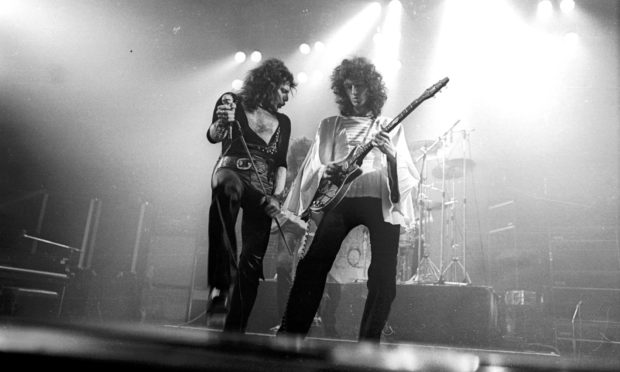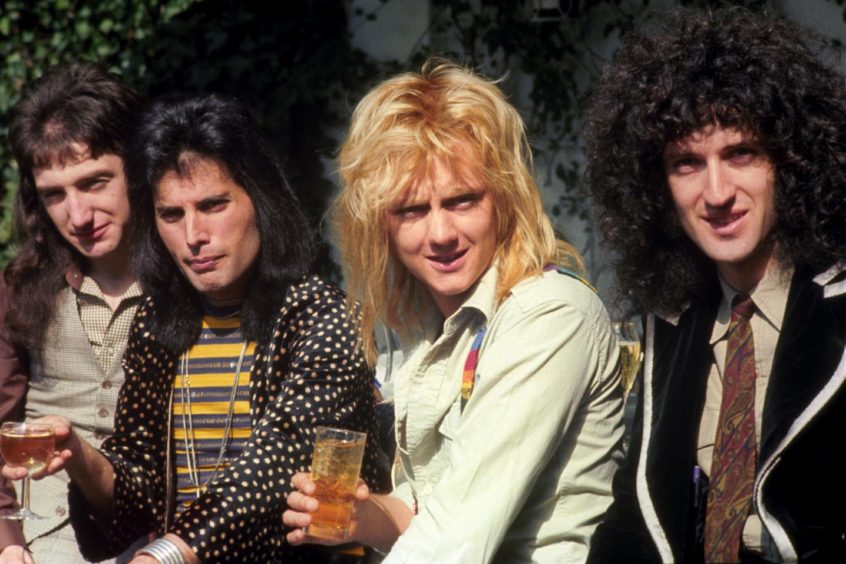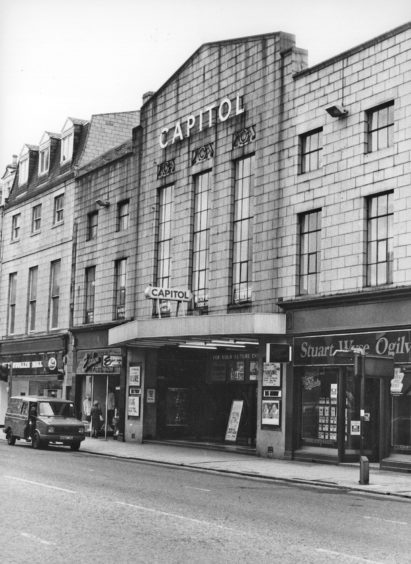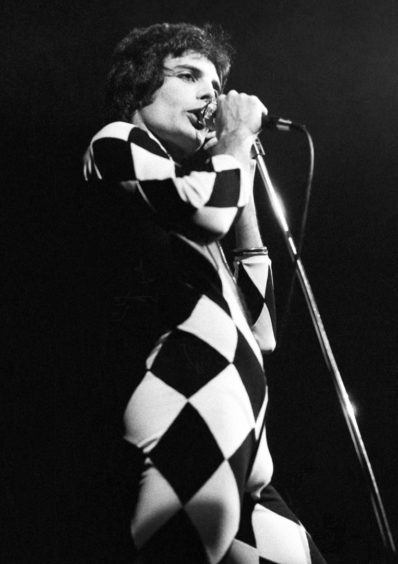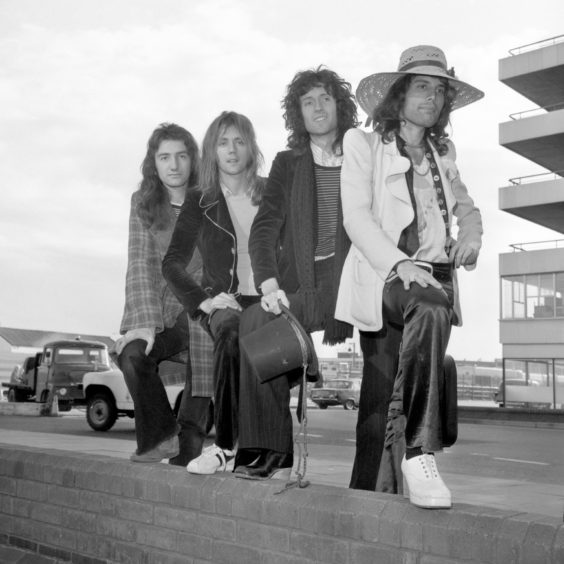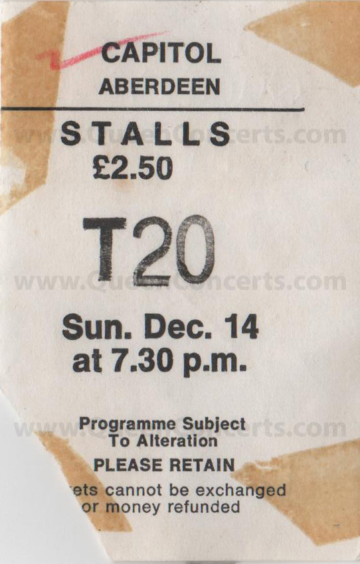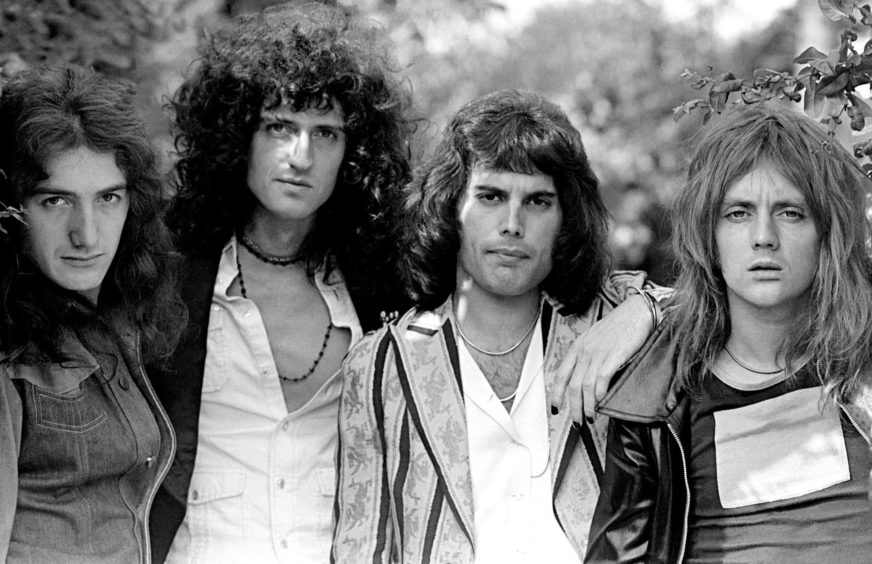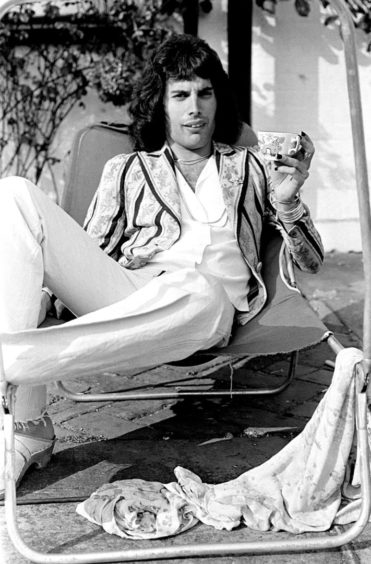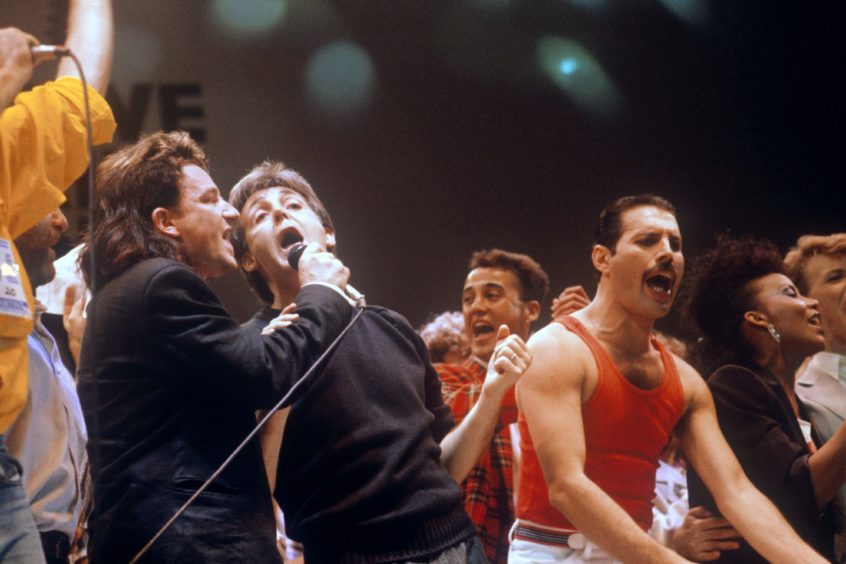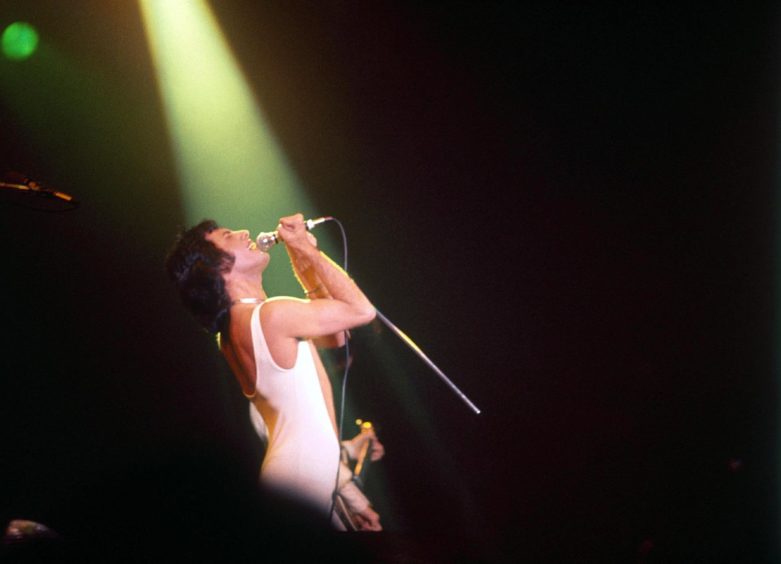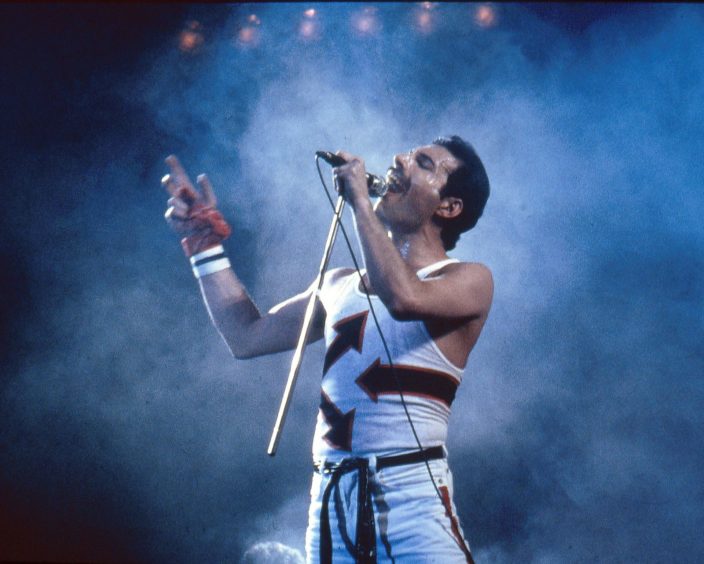Is this the real life? Is this just fantasy? It was a question on the minds of many Queen fans when the iconic band kicked off their legendary gig at Aberdeen’s Capitol 45 years ago.
Coming as Bohemian Rhapsody was firmly fixed at number one – and heading for the coveted Christmas slot – there had been speculation about just how Freddie Mercury and the boys were going to recreate live on stage that ground-breaking and so complex sound of the single.
It was foremost in the mind of at least one man at the concert in the famed Union Street theatre, journalist Neil Horne who was there to review what promised to be a spectacular show for the Evening Express.
God save Queen
He said: “Before the show I remember thinking to myself ‘God save (the) Queen’ if they attempt a live performance of Bohemian Rhapsody. But play it they did – not once but several times – during the 22-number blockbuster gig on the wee cinema stage of the art deco Capitol Theatre.
“They even opened the show with that first epic No 1…a rock-opera masterpiece so full of recording trickery and soaring harmonies that it took them four months at seven different studios to perfect.”
How did the multi-tracking recording masterpiece translate to a live performance on December 14 1975 when the A Night At The Opera tour arrived in Aberdeen?
“Fantastically well as it happened. In fact so good that I suspected jiggery-pokery and wrote in my review ‘Scaramouche, Scaramouche….working a flanker.’ After all, way back then ‘live’ meant ‘live’ with stage effects and backing tracks virtually unheard of.
“So, after this amazing display of ground-breaking hi-tech what else did they do? Well, you couldn’t get much more back to basics than the Elvis classic Jailhouse Rock or Shirley Bassey’s camp anthem Hey Big Spender.”
Deaf for days
Neil admitted that he wasn’t too familiar with Queen’s body of work at the time. Bohemian Rhapsody was from their fourth album.
“Of course, I recognised Seven Sea of Rhye, Killer Queen and Flick Of The Wrist but many of their numbers were new to me,” he said.
“Nevertheless I can honestly say it counted as the best live rock show I have seen before or since – although it did leave me deaf for about two days!”
Neil, now retired, wasn’t the only one blown away by Queen’s one and only concert in Aberdeen. Doug Anderson was in the audience, too, and while certain the opening of Bohemian Rhapsody was pre-recorded, it didn’t diminish the experience one jot.
“It was brilliant, but the start was weird,” said Doug, an aviation agent at Aberdeen International Airport.
Flash bangs went off
“It was almost like they were playing the record of Bohemian Rhapsody until it speeded right up, flash bangs went off and that was the band playing. That was the start, all the stage lights went on and it was something else. The whole place erupted, the Capitol was packed that night.
“It didn’t slow down from there, it was just one after another.”
Doug remembers other highlights, such as Big Spender, as well as many tracks from A Night At The Opera as well as their early numbers and a few covers, before finishing the outstanding night with the national anthem.
“Freddie had on that black-and-white harlequin suit, he walked down to the front of the stage with a basket with red roses. He started throwing them out into the crowd, saying: ‘thank you, my lovelies’. Typical Freddie Mercury, it was excellent. The audience were just lapping it up and that’s my main memory of the night.
“Freddie was just the ultimate frontman. And the whole thing was just a spectacle.”
He had been looking forward to the gig as a Queen fan from their first album onward but had an anxious wait to discover if he was even going to the concert, which sold out almost as soon as the tickets went on sale.
Produced a masterpiece
“You had to apply for a ticket and send a postal order to the Music Hall box office and you didn’t know if you were going to get a ticket or not,” said Doug. “But I remember it was no money at all, something like £2.50.”
A gig-goer of many years, Doug counts the Queen concert as up there with some of the best he’s seen, including David Bowie at the Music Hall, Black Sabbath, Van Halen – and the night he saw Iron Maiden, Saxon and Motorhead in a triple bill in the Capitol.
The stunning success of Bohemian Rhapsody and Night At The Opera was a turning point for Queen.
The band were broke in 1974 after three albums when Elton John’s manager John Reid freed them of previous commitments to management and record labels and told them to “go away and make the best record you’ve ever made and I’ll sort out the money side”.
They produced a masterpiece although Reid didn’t think six-minute Bohemian Rhapsody was commercial enough as the lead single.
But the band ignored his advice and took the song to DJ Kenny Everett at Capitol Radio who was so impressed that he aired the song 14 times over one October weekend.
Hordes of fans then attempted to buy the single the following Monday and EMI eventually released it in its full-length glory. It was perhaps fitting that the tour concerts opened with a recorded introduction by Everett.
Rock star burned ever so bright
Born Farrokh Bulsara, in Zanzibar, on September 5 1946, he started going by the name of Freddie when he was at St Peter’s, a boarding school for boys near Mumbai.
He legally changed his name to Freddie Mercury around 1970, when Queen was formed.
Freddie’s talents as an entertainer were first recognised when he was still a pupil at St Peter’s.
The headteacher was aware of Freddie’s talents and wrote to the future star’s parents, suggesting that Freddie could benefit from a musical education if they were willing to pay the necessary extra fees.
Making rock history
From there, Freddie started to learn to play the piano, joined the school choir and had starring roles in various theatrical productions.
After his family moved to England, Freddie became friends with Tim Staffell who was in a band called Smile with none other than Brian May and Roger Taylor, paving the way to a future group for the new friends, although Freddie sang with the bands Ibex and Sour Milk Sea first.
Staffell left the band and it was after his departure that Freddie and bassist John Deacon joined and Smile were renamed Queen.
The rest is rock history.
Queen enjoyed phenomenal success, with Bohemian Rhapsody the only song ever to reach the top spot in the charts at Christmas twice.
Their phenomenal success continued around the globe throughout the 1980s which was highlighted in 1985 by their show-stealing and unforgettable performance on stage at Live Aid at Wembley Stadium.
Barcelona was an anthem
His first major collaboration outside Queen was with Dave Clark for the recording of London’s West End musical Time, in 1986.
This was followed in 1987 when he recorded an album with Spanish opera giant Montserrat Caballé and the LP’s title song Barcelona went on to become an anthem for Caballé’s home city and the theme for the Olympics in 1992.
Freddie had earned himself a loyal army of fans, who’d become concerned for him after he had begun to look gaunt and generally unwell in the late 80s.
He announced on November 23 1991, that he was suffering from AIDS and, just a day later, passed away.
Although it is now no secret Freddie was gay, he did have a long-term girlfriend, Mary Austin, whom he cared for very deeply.
Freddie’s final recording
The Queen ballad Love Of My Life was written for her, in fact, and they were close even after they broke up — Freddie was the godfather to Mary’s son, and when Freddie died, he left Mary most of his money, his house and recording royalties.
At his request, she was to be the only one given access to his ashes, whose whereabouts he only wanted Mary to know.
In the weeks before his death, though gravely ill, Freddie, who sang The Show Must Go On, would go into the band’s studio in Montreux, Switzerland when he felt capable.
The album, which includes Too Much Love Will Kill You, was pieced together from those last recordings.
The song Mother Love is the final vocal recording Mercury made.
After completing the penultimate verse, the exhausted singer said he “wasn’t feeling great” adding: “I will finish it when I come back, next time.”
However, he never made it back and May later recorded the final verse.
